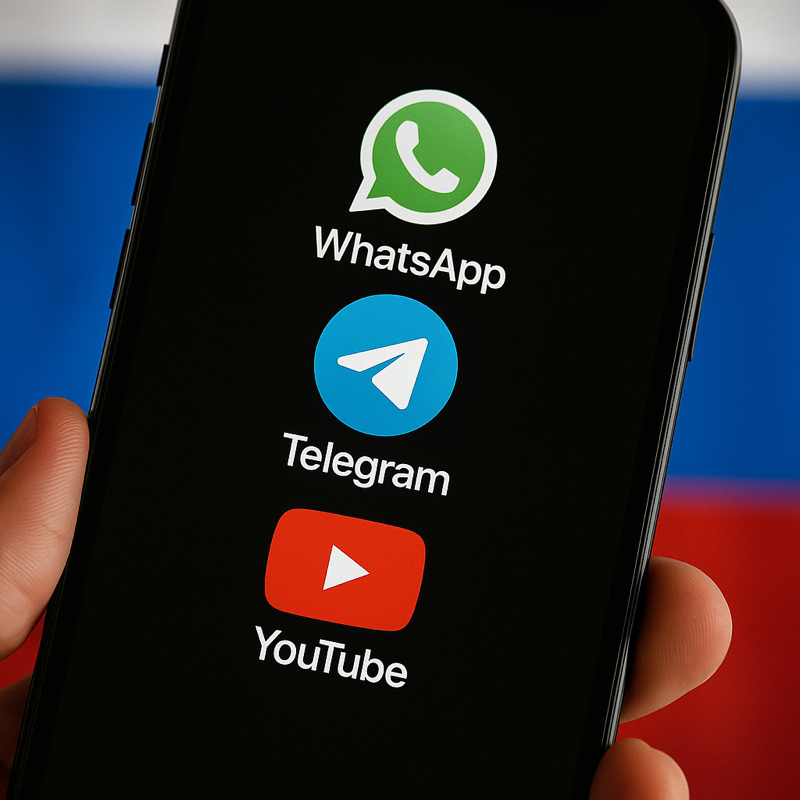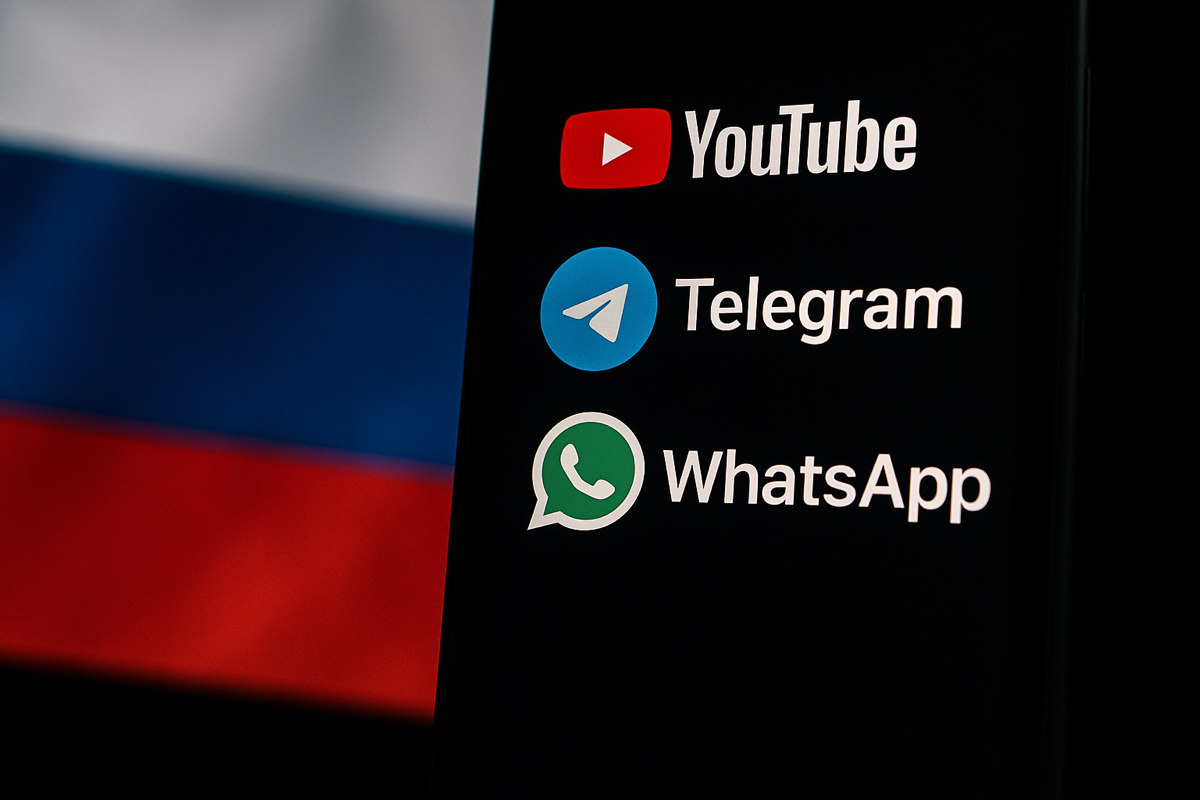Russia is blocking foreign-owned messaging apps and video platforms, including WhatsApp, Telegram, and YouTube, as part of a sweeping crackdown on digital communications. These restrictions, amid increasing Russian internet blackouts, add to a growing list of limitations for international companies. Implementations of more blocks and blackouts ramped up after the Ukraine war began.
What’s Happening & Why This Matters
The Russian government claims the mobile internet blackouts are intended to disrupt Ukrainian drone operations by cutting communication channels used for coordination. According to Reuters, officials are rolling out targeted blackouts region by region. They have special measures designed to protect domestically developed apps and services as part of their strategy related to internet blackouts.
Among the state-backed platforms shielded from the shutdowns is MAX, a new government-approved messenger launched in August. MAX will soon be pre-installed on all smartphones sold in Russia, thanks to recent legislative mandates. Other protected services include Mir, Russia’s national electronic payment system, which has grown in importance amid increasing global sanctions.

However, critics argue that these moves are about surveillance and control, not national security. International companies like Meta warn that forcing citizens toward government-controlled apps weakens privacy. Unlike WhatsApp and Telegram, MAX does not guarantee end-to-end encryption, making it easier for authorities to monitor private conversations, a concern levied in amid discussions on internet blackouts.
Rising Public Protests
Public backlash is reaching a boiling point. Earlier this month, protests erupted in several Russian cities against the government’s restrictions on voice and video calls made through WhatsApp and Telegram. The protests, publically, represent the widespread discontent over the Russian internet blackouts. The Moscow Times reports that members of the local Communist Party have joined the outcry. They argue that the blackout measures violate constitutional rights to free communication.
Despite these demonstrations, Russia’s track record suggests little hesitation in tightening control. Facebook and Instagram were officially blocked in March 2022, with the government citing extremism laws. These bans have not fully succeeded, however. According to Bloomberg, Russia still had 33 million active Instagram users in mid-2025. This is down from over 50 million in 2021 but still represents one of the platform’s largest global user bases.
Blackouts Hard to Circumvent
In the past, users have relied on VPNs to bypass restrictions. This new wave of blackouts, however, includes heavy-duty network disruptions that cut off internet access entirely in some areas, rendering VPNs ineffective. These shutdowns have been tested in regions such as Dagestan, Chechnya, and Ingushetia. Observers note how far the government desires citizens’ isolation digitally via the internet blackouts campaigns.
By forcing people toward government-controlled services, Russia gains both an advantage in wartime communications and a domestic surveillance tool. Critics warn that this methodology mirrors tactics used by other authoritarian regimes. Their goals are to centralize information flow and limit citizen autonomy through measures similar to Russia’s blackouts.
TF Summary: What’s Next
Russia’s plan to block WhatsApp, Telegram, and YouTube is a major, if not unsurprising, escalation in online censorship. Authorities claim the decisions are about military strategy, the long-term effects point toward increased state surveillance and reduced privacy for citizens.
Global companies like Meta and Google face irreversible losses in the Russian market. Meanwhile, local dissent will grow as millions of users resist being pushed onto restricted platforms. With VPNs no longer a reliable workaround, Russia’s internet ecosystem risks becoming a closed digital environment. Deeper geopolitical tensions hold sway here as the Russian blackouts saga is only beginning.
— Text-to-Speech (TTS) provided by gspeech


